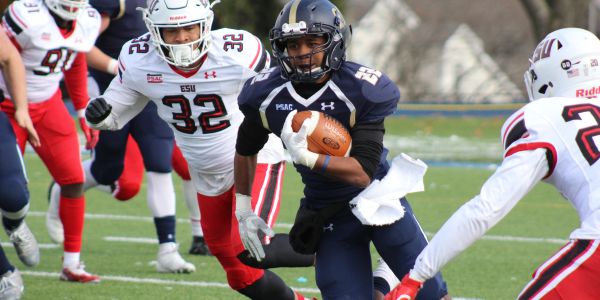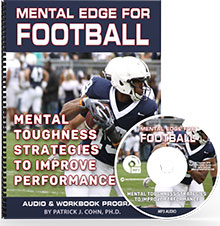
Would you consider yourself an A-plus teammate?
Most football players on a team would consider themselves good teammates.
If you ask them why they believe they are positive, productive teammates, you hear “I get hyped for my teammates when they are playing,” “If a teammate has a bad play, I check on them,” and “During practices, I encourage my teammates.”
All these are valuable attributes to being a supportive, positive teammate in football.
Let’s take this “good teammate” discussion to another level. Have you ever been sidelined or lost your starting role to a player you thought was not deserving?
How did you respond in that situation? Do you complain, talk behind a teammate’s back, withdraw from your team, or put less effort into practice?
Any player can be a good teammate when things fall in their favor. However, your true value to the team is spotlighted when things are not going your way.
Even when you are not playing significant minutes, it does not mean your role on the team is any less significant.
No matter your role, you can:
- Elevate your team’s performance by pushing each other in practice.
- Help the team develop good habits by holding each other accountable for each other’s actions and attitudes.
- Contribute to the team’s positive mindset and culture.
- Improve your skills to contribute to the team when called upon.
- Support your teammates and help them develop their skills.
In other words, you can always find ways to improve the team’s overall performance, even if you are not in the starting lineup.
The Las Vegas Raiders started the 2024 NFL season with a 2-3 record. In the fifth game of the season, the Raiders lost to the divisional rival Denver Broncos 34-18.
Raiders starting quarterback Gardner Minshew, who underperformed in the first half, was benched in the third quarter after throwing his second interception of the game.
After the game, there were rumblings of Minshew being benched long-term.
However, Minshew never complained about being taken out of the game. Instead, Minshew vowed to be a good teammate, help the team no matter his role, and support potential starting quarterback Aidan O’Connell.
MINSHEW: “I thought we got off to a good start, Then I killed off our momentum with a pick-six and at the end of the day, I didn’t do a good enough job giving us a shot to be competitive in this game. That’s on me. I’ll get back to work and keep going. No matter what my role is on the team, I’m gonna help the team any way I can.”
Teams perform at their peak when every team member has a common goal and puts their entire focus and effort towards achieving that objective.
Being a productive, positive teammate requires that you do everything you can to maximize your abilities while doing everything you can to optimize your team’s performance.
Put the team’s needs in front of your own. To be a productive teammate, it is crucial to understand your role and how you can positively impact the team’s performance.
Before each practice and game, ask yourself, “What can I do today to contribute to the team’s success, given my circumstances?”
Related Sports Psychology Articles
- How to Deal with External Noise
- Mental Toughness Test in Football
- How to Use Jim Harbaugh’s Finishing Mindset
*Subscribe to The Sports Psychology Podcast on iTunes
*Subscribe to The Sports Psychology Podcast on Spotify
Download a free sports psychology report to improve your mental game!
Learn more about our one-on-one mental game coaching.
The Mental Edge for Football

Are you (or your athletes) performing inconsistently in games with less confidence in games than in practice? Do you lose confidence easily after a couple of blown plays? Do you become so frustrated with your game that you can’t focus on the next play? If you answered yes to these questions, it’s a good bet that your mental game might prevent you from consistent performance in games.
“The Mental Edge For Football” is a complete brain dump of the TOP eight mental training sessions we teach our football players to help them boost their mental game and improve consistency – from how to mentally prepare for games to performing under pressure to building unstoppable confidence.